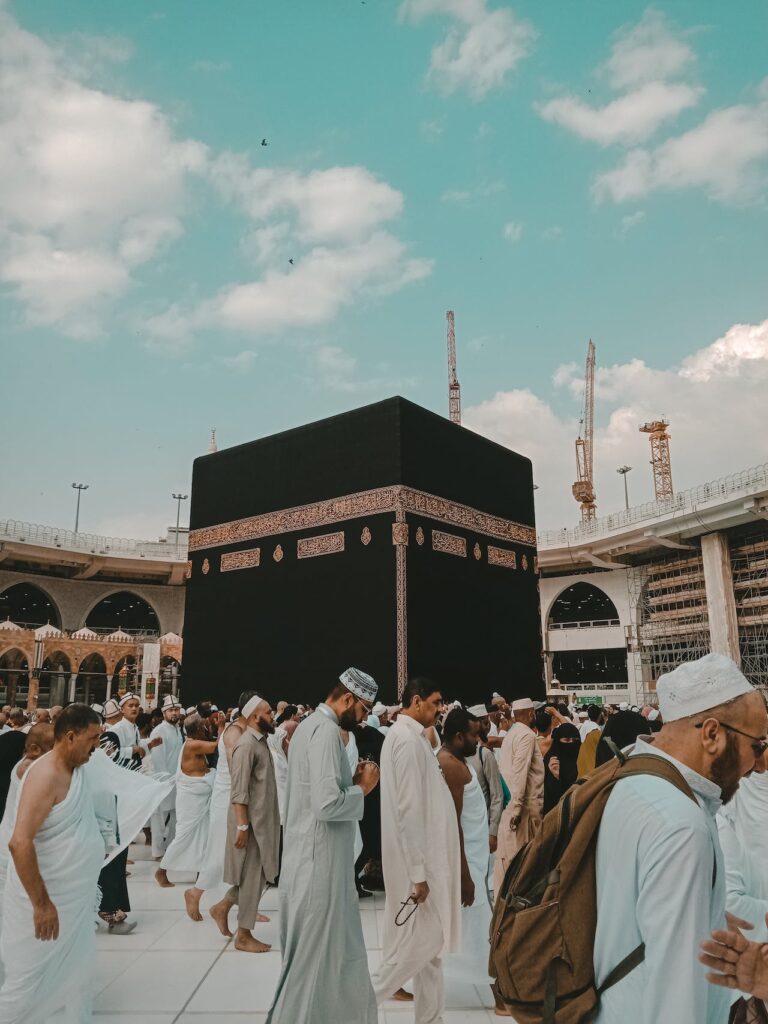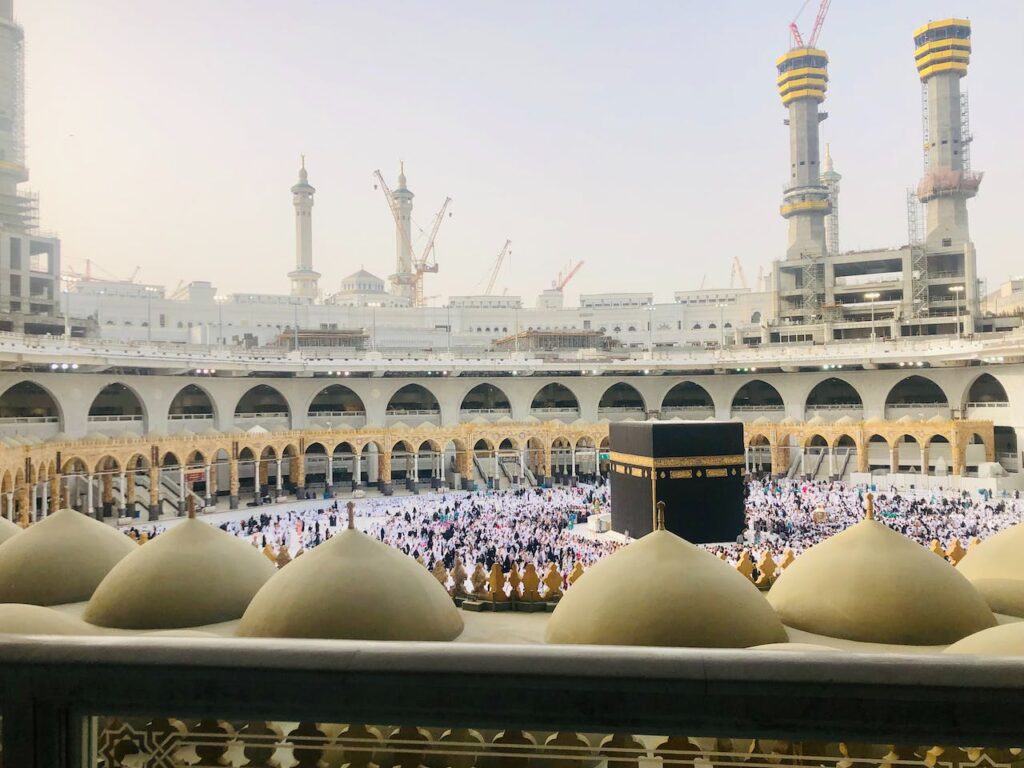Tawaf, the circumambulation of the Kaaba in Mecca, is a significant ritual in Islam performed by millions of Muslims worldwide. However, there is a common question that arises: Can women perform Tawaf during period? This article aims to delve into the religious and cultural perspectives surrounding this topic,
highlighting various opinions and providing a comprehensive understanding of the issue.
Can Women Perform Tawaf During Period?
No, it is not permissible for a menstruating woman to perform Tawaf during period, rather she must wait until her period ends to perform Tawaf.
Note that it is not necessary for entering Ihram and Sa’i to be clean from menstruation,
but a menstruating woman is not allowed to circumambulate the Kaaba until she becomes pure.
According to Ibn Taymiyyah, if a woman menstruates and cannot leave Mecca and return to it again,
there is nothing wrong with her getting an injection or medicine to stop her period,
or wearing a sanitary pad and doing Tawaf in case of necessity.
Read more about this Fatwa: Can Woman Do Tawaf on Her Period?
The Majority Opinion
The majority of Islamic scholars agree that women should refrain from performing Tawaf during menstruation. They base their opinion on the belief that menstruation is a state of ritual impurity and engaging in Tawaf while in this state is considered disrespectful to the sanctity of the Kaaba. This view is influenced by the Hadith, the recorded sayings and actions of the Prophet Muhammad (pbuh),
where he instructed menstruating women to abstain from Tawaf.
Alternative Perspectives
However, it is important to note that there are alternative perspectives on this issue. Some scholars argue that since menstruation is a natural process, women should not be prohibited from performing Tawaf. They emphasize that the Quran does not explicitly mention the prohibition of Tawaf during menstruation. They also highlight that menstruation does not invalidate a woman’s spiritual connection with Allah and her ability
to engage in acts of worship.
These scholars argue that Tawaf is a recommended act, not an obligatory one, and women should have the option to perform it if they desire,
as long as they take the necessary precautions to maintain cleanliness. They point out that there is no evidence of the Prophet Muhammad explicitly forbidding menstruating women from performing Tawaf.
Takeaway
- The question of whether women can perform Tawaf during menstruation is a topic that elicits various opinions within the Islamic community.
- While the majority opinion suggests refraining from Tawaf during this time due to the perceived state of ritual impurity, there are alternative perspectives that argue for women’s inclusion in this important ritual.
- These perspectives emphasize that menstruation is a natural process and that women should have the option to perform Tawaf if they desire, as long as they maintain cleanliness and take necessary precautions.
- It is crucial to respect and consider differing opinions on this matter, as individual beliefs and cultural traditions may influence personal choices regarding Tawaf during menstruation.
- Seeking guidance from knowledgeable scholars and religious authorities is recommended to make an informed decision based on personal circumstances and an understanding of Islamic teachings.
- In fostering an environment of inclusivity and understanding, it is important to recognize that women’s spiritual connection with Allah is not diminished by menstruation.
- The unity and diversity within the Muslim community can be upheld by respecting differing perspectives and promoting open dialogue on matters related to religious practices.
Conclusion
In conclusion, The question of whether women can perform Tawaf during menstruation
remains a subject of debate within the Islamic community. While the majority opinion suggests refraining from Tawaf during this time,
there are alternative perspectives that argue for women’s inclusion in this important ritual. It is crucial to recognize that individual beliefs and cultural traditions
may also influence personal choices regarding Tawaf during the Period.
Ultimately, it is recommended that women consult with knowledgeable scholars and seek guidance from
religious authorities to make informed decisions based on their personal circumstances
and understanding of Islamic teachings. Respect for differing opinions and fostering an environment of inclusivity and understanding are essential for unity and diversity within the Muslim community.






